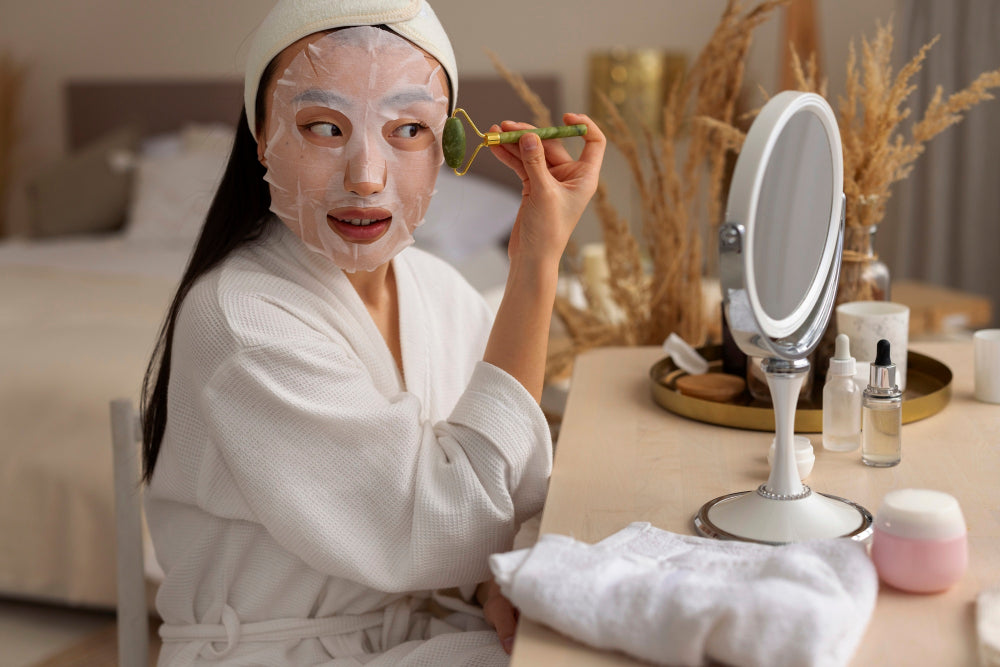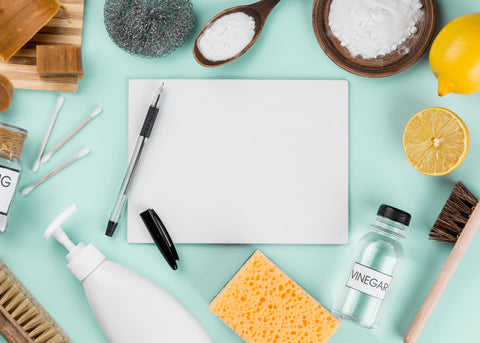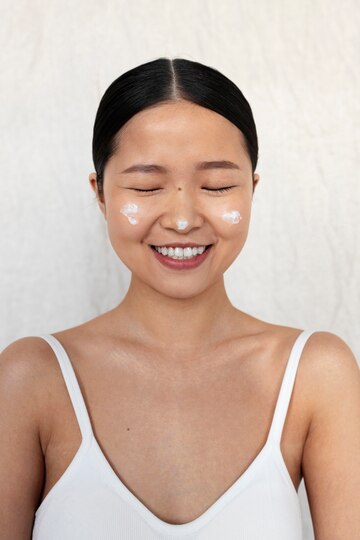15 Best Blackhead Removal Treatments of 2025


Blackheads are a prevalent skin issue characterised by small, dark lesions typically appearing on the face, especially the nose and chin. These are caused by clogged hair follicles. In medical terms, blackheads are known as open comedones. They consist of an accumulation of excess oil (sebum) and dead skin cells. The dark appearance is not due to dirt, but oxidation of the debris inside the pore when exposed to air. Managing blackheads effectively is crucial as they can lead to more severe acne if left untreated. Utilising proper removal techniques not only clears these blemishes but also enhances overall skin health and appearance.
Here's a list of the 15 best blackhead removal treatments:
Salicylic Acid Cleansers
Charcoal Masks
Benzoyl Peroxide
Retinoids
Nasal Strips
Microdermabrasion
Chemical Peels
Manual Extraction
Clay Masks
Oil Cleansing
Tea Tree Oil
Alpha Hydroxy Acids (AHAs)
Baking Soda and Water Paste
Steam
Laser and Light Therapy
Salicylic acid is a beta-hydroxy acid (BHA) known for its ability to penetrate into pores and dissolve the debris that causes blackheads. As a keratolytic agent, it facilitates the shedding of the outer layer of skin, promoting a smoother skin surface. Dr. Emily White, a dermatologist based in London, notes, “Salicylic acid is exceptionally effective at clearing pores and reducing the recurrence of blackheads. Its ability to break down fats and oils aids in the prevention of pore blockages.”
When choosing a salicylic acid cleanser, it is vital to consider the concentration. Products with 0.5% to 2% salicylic acid are suitable for most skin types. Higher concentrations may be available but are typically used under professional supervision. Dr. White advises, “For daily use, start with a lower concentration to see how your skin reacts, and always follow with
a moisturiser to prevent dryness.” Popular cleansers include CeraVe SA Smoothing Cleanser and La Roche-Posay Effaclar Medicated Gel Cleanser, both widely endorsed for their efficacy in removing blackheads and maintaining skin clarity.
Regular use of salicylic acid cleansers can significantly reduce the appearance of blackheads by keeping the pores clear of oil build-up and cellular debris. It is recommended to use these cleansers once or twice daily, depending on skin tolerance. Always apply sunscreen during the day as salicylic acid can increase skin sensitivity to sunlight.
Activated charcoal is known for its adsorptive powers, meaning it can bind to and draw out oil, dirt, and other impurities from the skin. This makes it particularly effective for the treatment of blackheads. The process by which activated charcoal acts is primarily physical; the charcoal particles adhere to the contents of the pores and are removed during the washing process. Dr. Laura Bennett, a skincare specialist, explains, “Charcoal masks provide a deep cleansing effect that reaches beyond the surface level, aiding in the removal of blackheads without excessive drying of the skin.”
Several charcoal masks have gained popularity due to their effectiveness and ease of use. The Origins Clear Improvement Active Charcoal Mask is highly regarded for its ability to clear pores. Another recommended product is the Boscia Luminizing Black Charcoal Mask, which includes ingredients that improve skin hydration and elasticity. Users are advised to apply charcoal masks one to two times a week and observe how their skin responds, gradually increasing usage as needed.
Benzoyl peroxide is a well-known acne treatment that also assists in blackhead removal. It works by killing bacteria under the skin and helping to clear out dead cells and excess oils that can lead to blackheads. “Benzoyl peroxide has a dual action in the fight against acne and blackheads, making it a staple in many skincare regimens,” states Dr. Bennett. Its antimicrobial properties reduce the presence of bacteria, which is crucial in preventing the inflammation that can exacerbate blackhead formation.
Products containing benzoyl peroxide are available in varying strengths, typically ranging from 2.5% to 10%. It is generally advised to start with the lowest concentration to gauge skin sensitivity. Notable products, that are also good for acne prone skin include Neutrogena Rapid Clear Stubborn Acne Cleanser and Proactiv Repairing Treatment. Application should be targeted to affected areas, and users should be aware that benzoyl peroxide can bleach fabrics. Dr. Bennett recommends, “Apply benzoyl peroxide sparingly and always follow with a non-comedogenic moisturiser to mitigate any potential skin drying.”
Retinoids are derivatives of Vitamin A, renowned for their ability to enhance skin cell turnover. This rapid turnover prevents cells from clogging pores and forming blackheads. Dr. White highlights, “Retinoids not only help in the prevention of blackheads but also improve the overall texture and tone of the skin.” They are particularly effective in treating both open and closed comedones (blackheads and whiteheads) and have additional anti-aging benefits.
Retinoids are available in various formulations, from milder, over-the-counter versions like adapalene (found in Differin Gel) to stronger prescription medications such as tretinoin. For individuals new to retinoids, it is advisable to begin with an over-the-counter product to minimize potential irritation. Dr. White advises, “Monitor your skin’s response carefully, starting with applications every other night until your skin builds tolerance.”
Nasal strips are designed to mechanically remove blackheads from the nose, one of the most common areas for these blemishes. The strips bond to the skin and, when removed, lift out the oil and debris clogging the pores. “Nasal strips can provide immediate improvement in the appearance of pores but should be used in conjunction with a comprehensive skincare regimen,” notes Dr. Bennett.
To achieve the best results from nasal strips, it is essential to follow the instructions carefully. The skin should be cleansed thoroughly before applying the strip. After wetting the nose area, apply the strip and let it dry for about 10-15 minutes. Remove the strip slowly and carefully from the edges towards the centre. Dr. Bennett suggests, “Use nasal strips no more than once a week to avoid excessive irritation and complement their use with other pore-clearing treatments discussed earlier.”
Microdermabrasion is a non-invasive procedure that uses a device with an abrasive surface to gently sand away the thick outer layer of the skin to rejuvenate it. This treatment is particularly effective at exfoliating and removing dead skin cells that contribute to clogged pores and blackheads. Dr. Susan Clarke, a dermatologist with expertise in cosmetic procedures, explains, "Microdermabrasion enhances the skin's appearance by reducing fine lines, early sun damage, and mild, shallow acne marks. It is not only effective in treating blackheads but also leaves the skin with a fresher, more glowing look."
The benefits of microdermabrasion include improved skin texture and tone, reduced appearance of pores, and a decrease in the number of visible blackheads. It is safe for almost all skin types and colors. However, Dr. Clarke advises, "Patients with very sensitive skin or severe acne should consult with a dermatologist before undergoing microdermabrasion." The procedure can cause slight redness and swelling, but these typically subside within a few hours. Regular sessions can maintain the desired outcomes and to prevent blackheads and their formation.
Chemical peels involve applying a chemical solution to the skin to remove the top layers. The skin that grows back after a peel is smoother and younger-looking. For blackhead removal, light to medium peels, such as glycolic acid, salicylic acid, and lactic acid peels, are highly effective. These peels help break down the plugs in pores that cause blackheads. Dr. Clarke notes, "Salicylic acid peels are particularly effective for oily skin types and in treating acne and blackheads because they penetrate deeply into the pores."
During the treatment, the applied chemical solution causes slight irritation to the skin which peels off over the following days. Depending on the strength of the peel, a session can take from 15 minutes to an hour, with recovery times varying as well. Dr. Clarke recommends, "Patients should expect some redness and scaling post-procedure, which diminishes over a few days. Sun protection is crucial after a chemical peel to protect the new skin."
Manual extraction is performed by skincare professionals using specific tools to carefully remove blackheads and other impurities from the pores. This method offers immediate improvement in skin clarity and is often used in conjunction with other treatments. "Extraction, when done professionally, can quickly clear clogged pores and make the skin look significantly better," says Dr. Clarke.
Attempting to extract blackheads at home can lead to skin damage, including scarring and infection. Professional dermatologists or trained aestheticians use sterile equipment and follow techniques that minimize skin trauma. Dr. Clarke stresses, "Professional extraction is not only safer but also more effective than DIY methods, as it involves a thorough assessment of the skin type and condition before treatment."
Clay masks are a popular treatment for blackheads due to their ability to absorb oil and draw out impurities from the pores. There are several types of clay, each with unique benefits:
Kaolin Clay: Gentle on the skin and effective at absorbing oil and grime.
Bentonite Clay: Has stronger oil-absorbing properties and helps to remove toxins from the pores.
Rhassoul Clay: Particularly good for sensitive skin, as it is rich in minerals and less drying than other clays.
Choosing the right clay mask depends on your skin type and specific needs. For oily and blackhead-prone skin, bentonite and kaolin clays are recommended. Dr. Clarke advises, "Apply a clay mask once or twice a week after cleansing, and follow with a hydrating moisturiser to balance the skin's moisture."

The oil cleansing method involves using specific oils to dissolve the sebum that clogs pores. Contrary to what might be expected, applying oil to the skin can actually reduce oiliness and clear blackheads. "Like dissolves like, which means that using oils can effectively dissolve the oils and impurities in the pores," Dr. Clarke explains.
Common oils used in oil cleansing include castor oil, which has antibacterial properties, and lighter oils like jojoba or grapeseed oil, which are less likely to clog pores. The technique involves massaging the oil into the skin, then gently steaming the face with a warm, damp cloth to open the pores and remove the oil, along with any impurities. Dr. Clarke recommends, "Start with a mix of about one-third castor oil to two-thirds carrier oil, adjust according to how your skin responds."
Tea tree oil is renowned for its antibacterial and anti-inflammatory properties, making it a beneficial ingredient in treating blackheads and other forms of acne. Dr. Fiona Moss, a skincare expert, remarks, "Tea tree oil can significantly reduce skin inflammation, bacterial growth, and oil production, aiding in the prevention of blackheads."
To incorporate tea tree oil into your skincare routine, it should always be diluted with a carrier oil such as coconut, almond, or olive oil to prevent skin irritation. Typically, a safe dilution would be about 5% tea tree oil to 95% carrier oil. Dr. Moss advises, "Apply the diluted tea tree oil directly to the affected areas with a cotton swab after cleansing, no more than twice daily."
Alpha hydroxy acids, such as glycolic acid and lactic acid, are water-soluble acids that work by exfoliating the skin's surface and promoting new cell turnover. "AHAs are particularly effective at breaking down skin debris that can clog pores, such as dead skin cells, improving overall skin texture and reducing the appearance of blackheads," explains Dr. Moss.
Products like The Ordinary Glycolic Acid 7% Toning Solution and SkinCeuticals C + AHA are highly effective in incorporating AHAs into a skincare regime. These products should be used several times a week, initially, to ensure the skin can tolerate the acid without irritation.
Mixing baking soda with water creates a paste that can be used as a gentle exfoliant. To make this paste, combine one part baking soda to two parts water and mix until a spreadable paste forms. Dr. Moss suggests, "Apply the paste in a gentle circular motion over the face and then rinse with warm water. This can help remove surface oils and dead skin cells that contribute to blackheads."
While baking soda can be effective, it is also a powerful alkaline substance that can disrupt the skin's natural pH balance. It is recommended to use this treatment sparingly, no more than once per week, and to follow with a neutral pH moisturiser.
Steam helps to open up the pores and loosen the buildup of dirt, oil, and debris, making it easier to remove blackheads. "Using steam can soften the skin and improve the efficacy of other treatments, such as masks or cleansers, by allowing deeper penetration into the pores," Dr. Moss explains.
To steam safely at home, fill a bowl with hot water, drape a towel over your head, and hold your face about 6 inches above the water for up to 10 minutes. Avoid using overly hot water as it can cause skin irritation or burns. Following steaming, applying a clay mask or conducting a gentle exfoliation can further enhance the removal of impurities.
Laser and light therapies target the skin at a deeper level, using light energy to reduce oil production and kill bacteria. These treatments can be particularly effective for persistent blackheads and acne. Dr. Moss states, "Laser therapy can provide significant improvements by shrinking the oil glands and reducing oil production, thereby preventing future blackheads."
The benefits of these therapies include reduced inflammation, fewer acne breakouts, and a decrease in the appearance of pores. Treatments are typically offered in dermatological clinics and require multiple sessions to achieve optimal results. Dr. Moss recommends consulting with a skincare professional to determine the best type and frequency of treatment based on individual skin conditions.
To effectively draw out deep blackheads, a combination of treatments may be necessary. Chemical peels that use glycolic or salicylic acid can exfoliate the skin deeply and loosen blackheads, making them easier to remove. Professional treatments like microdermabrasion or manual extraction by a dermatologist or skincare professional can also be highly effective in removing deeper, more stubborn blackheads. For at-home treatment, using a topical retinoid can gradually clear deep blackheads by promoting cell turnover and preventing the pores from becoming clogged.
The most effective blackhead removal often depends on the individual's skin type and the severity of their blackheads. However, salicylic acid treatments are widely regarded as among the most effective due to their ability to dissolve pore-clogging debris. For immediate results, manual extraction performed by a professional is highly effective. For long-term treatment, using a combination of chemical exfoliants like AHAs and BHAs, retinoids, and regular professional cleanings can help manage and reduce blackheads significantly.
Blackheads can sometimes go away naturally as the skin sheds its outer layer and naturally pushes out the debris clogging the pores. However, this process can be slow and is not guaranteed, especially for persistent or deep blackheads. To speed up the removal of blackheads and prevent new ones from forming, it's advisable to use skincare treatments that promote skin turnover and keep the pores clear, such as salicylic acid or retinoids. Maintaining a regular skincare routine that includes exfoliation and cleansing can also help manage and reduce the appearance of blackheads over time.
Effectively managing blackheads requires a combination of proper skincare techniques and professional treatments. From natural remedies like tea tree oil and baking soda to advanced methods like chemical peels and laser therapy, there are numerous options to suit different skin types and preferences. It is advisable to consult with a dermatologist to tailor a treatment plan that addresses individual skin concerns while promoting overall skin health.








Plus get the inside scoop on our latest content and updates in our monthly newsletter.